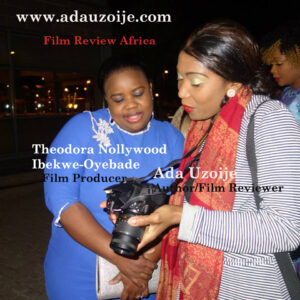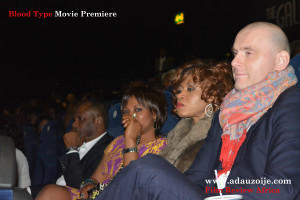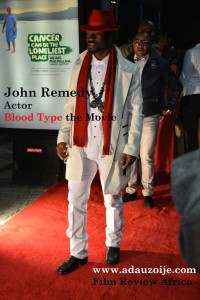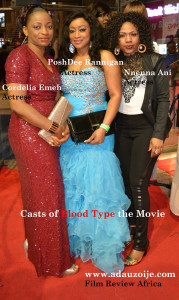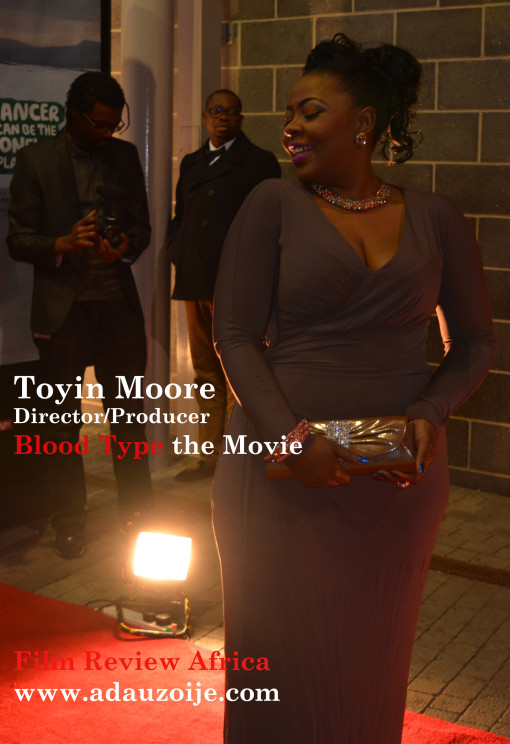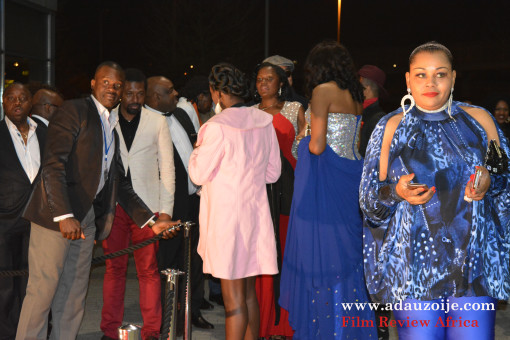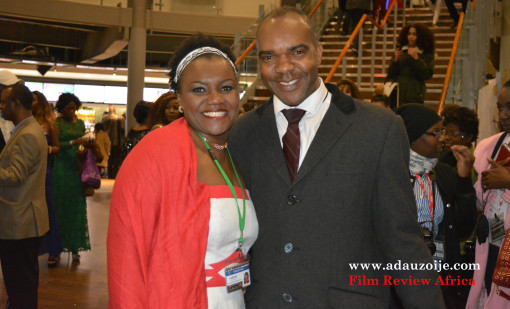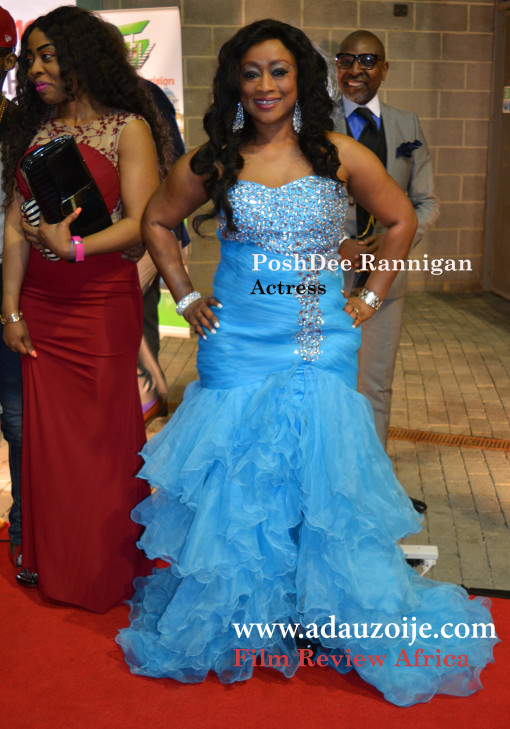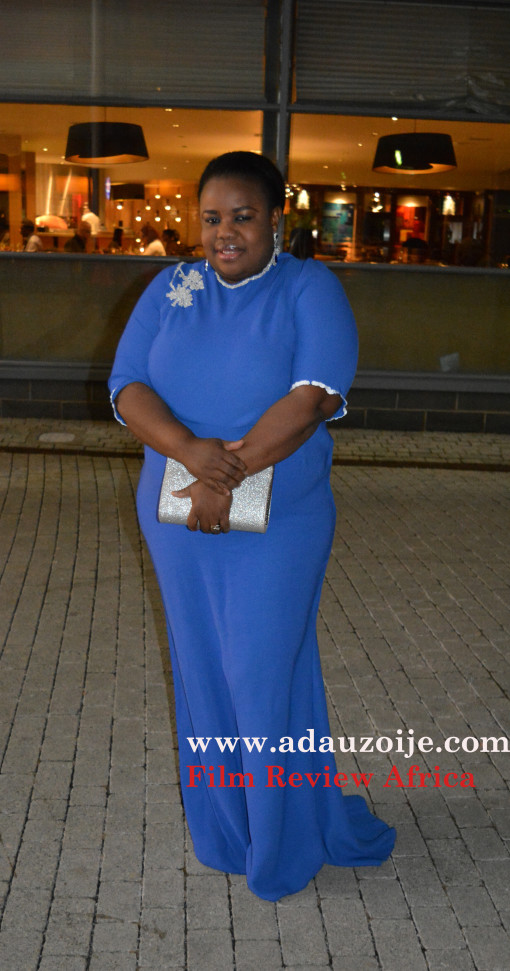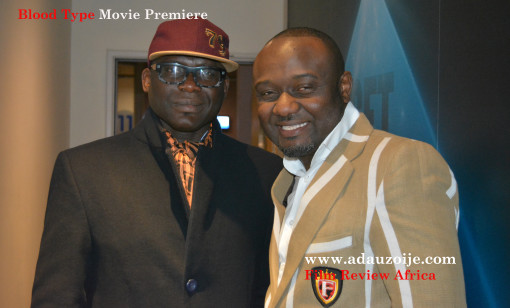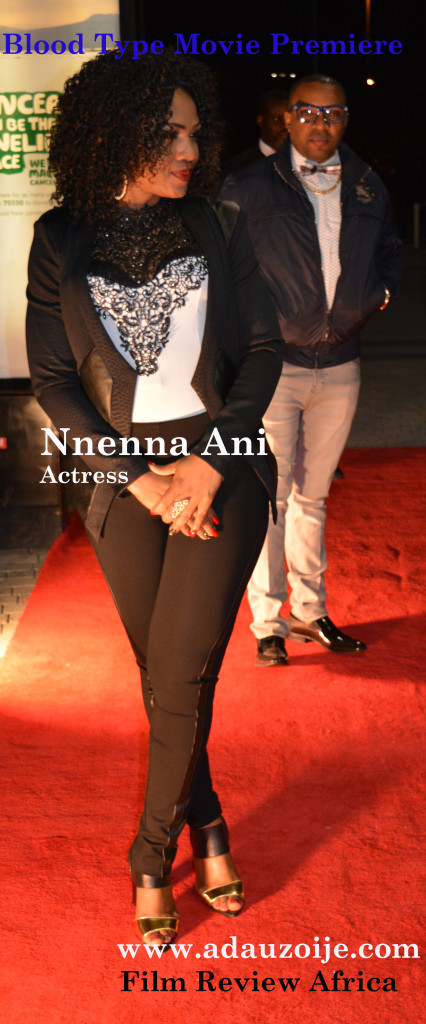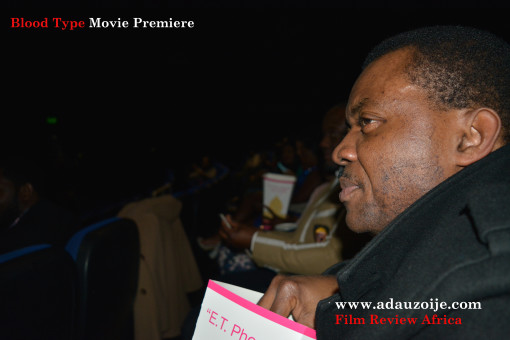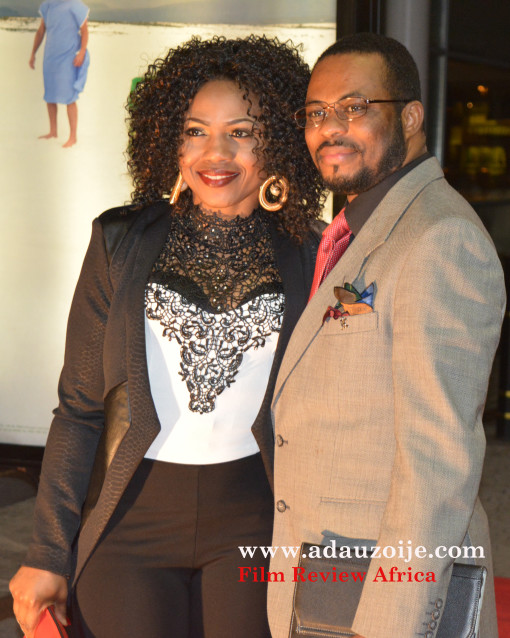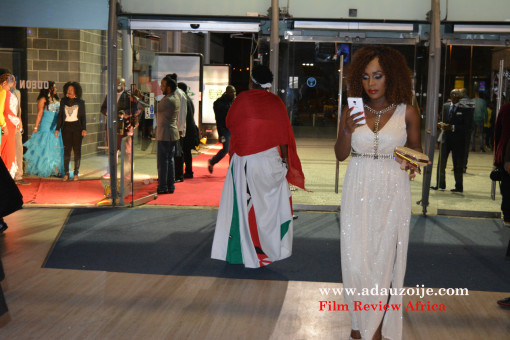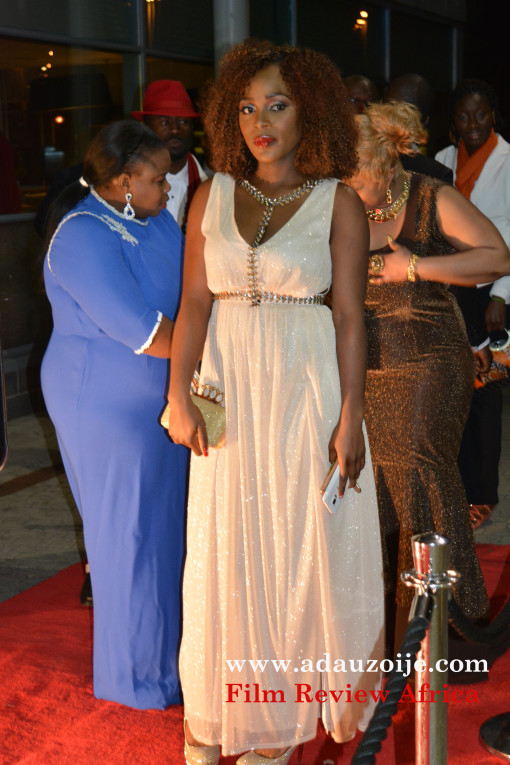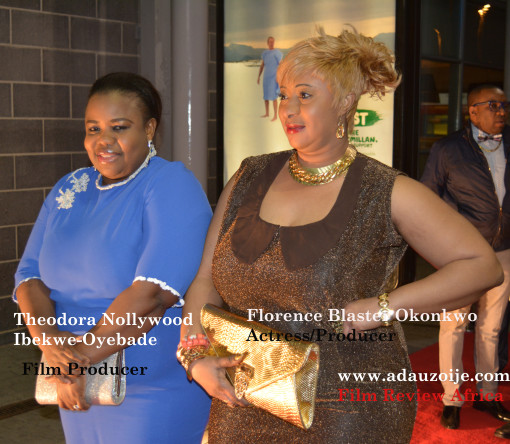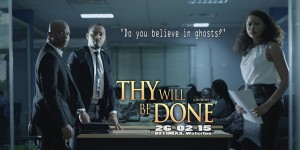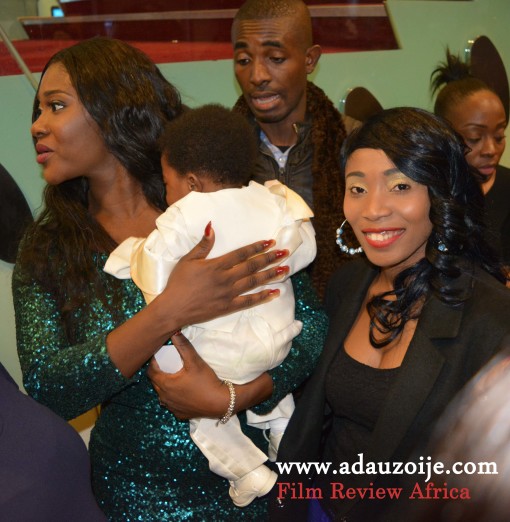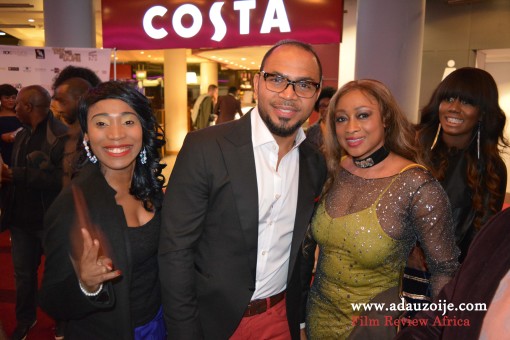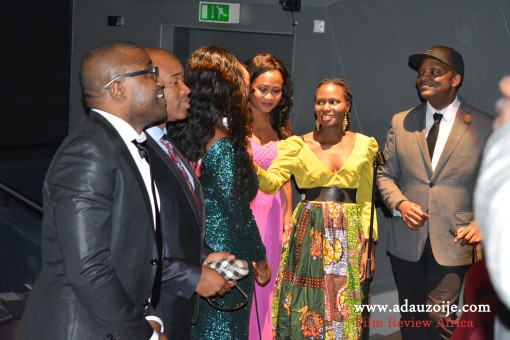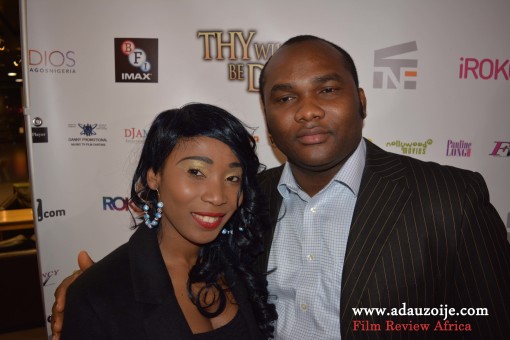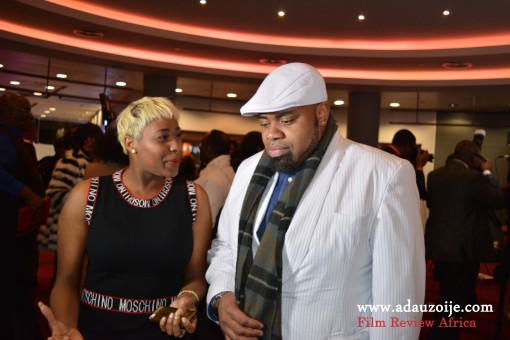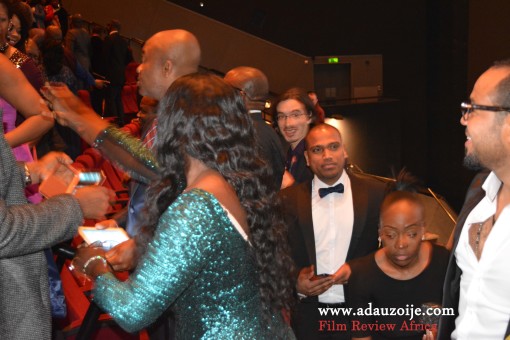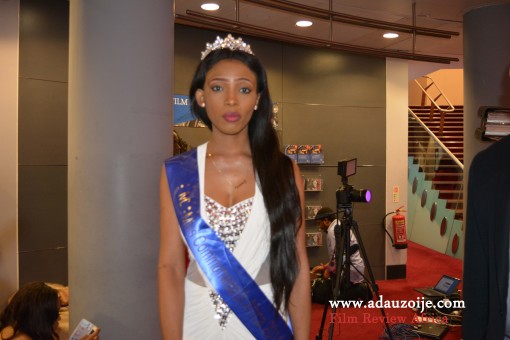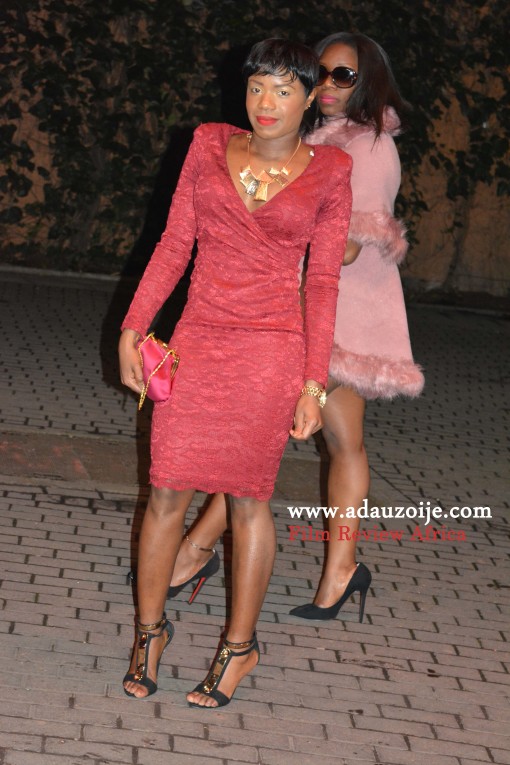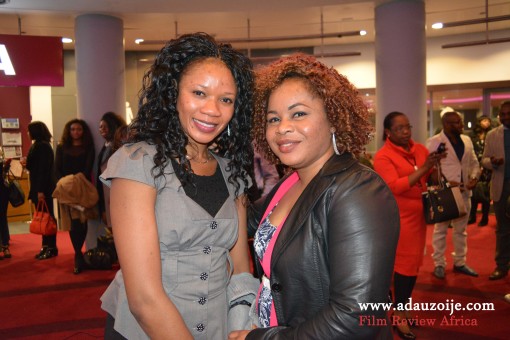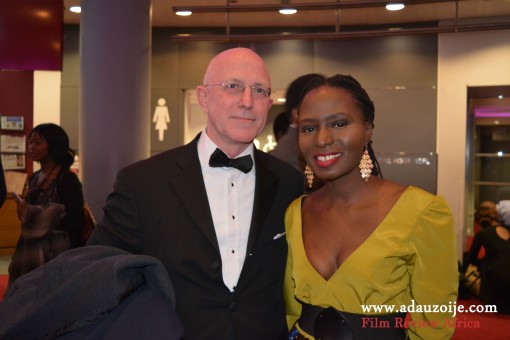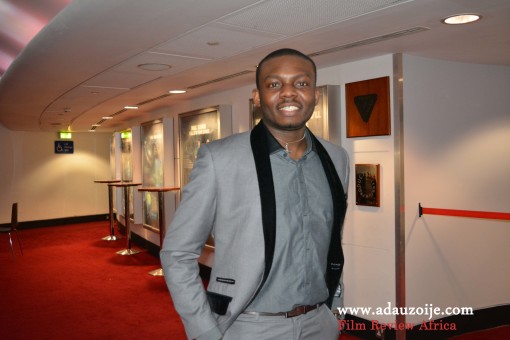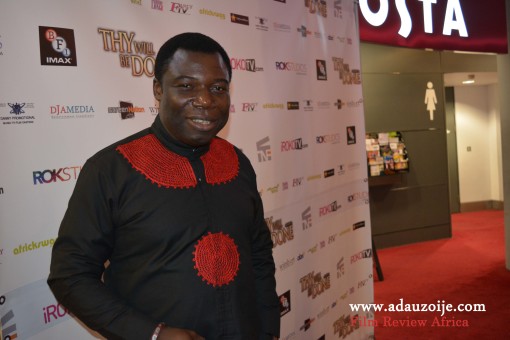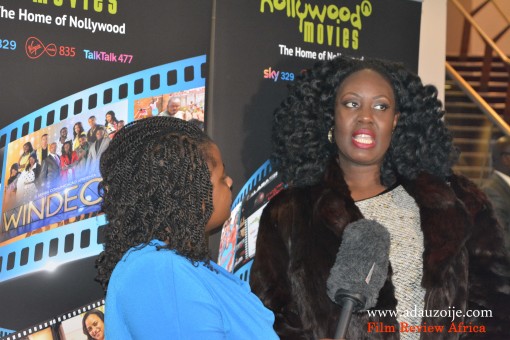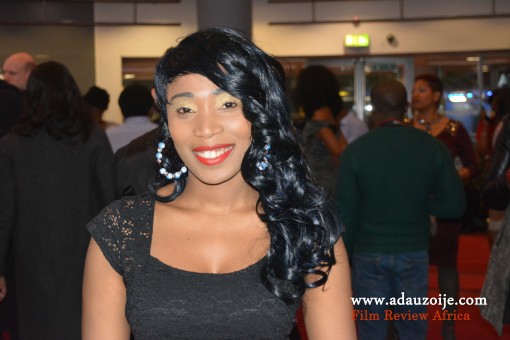BLOOD TYPE – The Review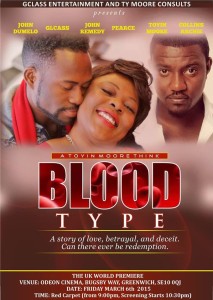
Once again I attended another film premiere from West Africa on the 6th March 2015 at the Odeon IMAX cinema in Greenwich, London. It was for the film BLOOD TYPE, a movie directed and produced by Toyin Moore (Nigerian) and by assistant Producer Gladys Ndimuntoh (Cameroonian). I arrived just in time at 9pm to capture the beauty of the night with my favourite gadget (my camera, of course!). A big turnout of glamorous looking gents and ladies walked through the red carpet while posing for the cameras with delight.
This is Film Review Africa and I am Ada Uzoije, your passionate film reviewer bringing the best of Africa films inside out to you. The Review, The Video and the Photographs for the BLOOD TYPE film premiere are all here on just one page. Leave your comments below to inspire me to write more.
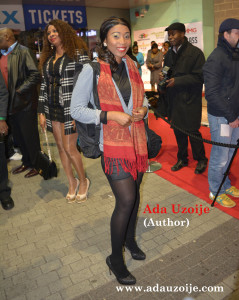

The Review
Toyin Moore’s film Blood Type exposes the destructive mental health state of the main character, Queen, played by the director herself. Queen was raped by a family member when she was a child, a secret she kept to herself for many years. A few days after Queen was raped, we see a sudden change in her behaviour from a happy girl playing with her doll to a resentful sad girl upset with everyone, including her parents, who just couldn’t grasp what was happening to their child.
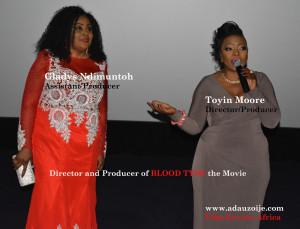
This movie is educative in terms of underlining the immediate and future effects of a paedophilic act on the victims. For Queen, the future effect was long-term depression, and she releases her bottled-up emotions by engaging in numerous sexual encounters with men she barely knows. This problem even stretched as far as Queen’s inability to be faithful, resulting in her husband seeking divorce. Some of the plausible questions that arose from these early scenes were whether Queen’s parents did enough to investigate the sudden change in their daughter’s behaviour, along with the question of whether parents in general have the sort of relationship in which their children feel comfortable enough to tell them anything. Are more paedophiles going to be exposed and arrested if more parents are proactive in uncovering the abuse their children are suffering? This is true life on film; rapists, paedophiles and child abusers could be anyone in the family, and that is what this movie stresses.
Undeniably, the storyline was enlightening, but the lack of continuity in editing from some of the transitional scenes created several moments of confusion for the viewers. A notable instance was the flashback scene of Queen cheating with her husband’s friend to the ‘now happening’ next scene of Joe crying alone on the bridge. There was a lack of careful editing of the above scenes to indicate the end of a flashback from the past so the viewer could quickly make a connection between the events unfolding. Additionally, some scenes were too fast, resulting in rough continuity editing, such as in the rape scene and when Joe first met Queen at her office. What features often is the reliance on long shots and the bad choice of camera angles evident in the rape scene, such as when the couple were outside the hospital, during the marriage ceremony and on the night when Joe and his friend visited the women for sex. These made the film much less engaging. Moreover, the audio was so exasperating loud that the secondary sounds took prominence over the primary sounds, such as hearing the sound of a chair’s legs being pulled away from the table when Joe and his friends wanted to sit down at the bar. Likewise, the visual colours were not sharp and enthralling, though the images do appear sharper on the YouTube video trailer than they did at the cinema screening at the premiere.
Nonetheless, the acting of the three main characters kept me entertained irrespective of the technical downsides. This was my first time watching an African film made in London and solely featuring actors and actress living in the UK. One upcoming actress that was notably entertaining was Nnenna Ani, who played Helen. Nnenna Ani’s acting was likeable and she provided much of the excitement in the film. She depicted a humorous character of Helen that creates laughable moments with her gospel preaching. She is a nuttier Christian that infuriates her co-workers including Queen with her daily preaching and she does it well, and obviously it made me laugh out loud. Helen was a true friend to Queen and she was adamant to stop her friend from suffering further destruction from her way of life. When Queen made the decisive confession “I don’t like marriage and marriage don’t like me”, Helen referred her and Joe to the marriage minister to save their marriage.
Conversely, Toyin Moore effectively played a convincing role of a sex-crazed plus size thirty-something woman, but was not so convincing when playing the role of an old woman retelling her story through flashbacks. Additionally, John Remedy’s appearance worked well in accord with the role of Joe, the lead actor. He was able to depict a realistic soft-hearted husband dominated by his wife, Helen. What John does best is convey the right emotions at the right time; his facial expressions and accent drew viewers in enough that they could feel the romantic aspect of this film.
The Video
The Photos
THY WILL BE DONE- The Review
I attended the ‘Thy Will Be Done’ film premiere on Thursday, 26th of February, 2015 at the British Film Institute (BFI) in London, UK. This was one of the most anticipated films from Nollywood for this year. The actors and actress from the film including Ramsey Noah, Mercy Johnson, Mary Njoku and Tony Aclet were present at the event. Popular UK Nollywood stars present include Danny Erskines, Nnenna Ani and PoshDee Rannigan. Leading director, Obi Emelonye that directed and produced THY WILL BE DONE, Sir (Chief) Gabriel Igbinedion and Governor Rochas Okorocha of Imo State, Nigeria, were among the famous people that attended.

This is Film Review Africa and I am Ada Uzoije, your passionate film reviewer bringing the best of Africa films inside out to you. The Review, The Video and the Photographs for the THY WILL BE DONE film premiere are all here on just one page. Leave your comments below to inspire me to write more.
THE VIDEO
THE REVIEW
Thy Will Be Done commenced with an opening scene that stimulated curiosity from the viewer to ask the ultimate question ‘Why did she faint?’ Muna, played by Mary Njoku, collapsed immediately when she saw the TV broadcast of pastor Pius preaching the gospel whilst serving a cup of tea to her master. This was done in slow motion and in conjunction with the soundtrack. It was one of the best opening scenes I had experienced from Nollywood. This particular scene was the first taste of suspense that brought us to the first riddle, ‘what is Muna’s relationship with Pastor Pius?’ Using flashback, the story of Muna’s identify was unfolded. Muna was pastor Pius’ true love when he got married to her 7 years ago. On their wedding night, she was kidnapped and was presumed dead. Muna lost her memory and was unable to track her way back home after she had escaped from her kidnapper. Fast forward 7 years later, and Pastor Pius is now married to Lucy who was played by the work obsessed maniac Mercy Johnson.
Another riddle that surfaced later was meant for only Pastor Pius to solve; “What is your plan?” the church elders asked him after rumours had spread among the congregation that their pastor was living with two wives.
“I don’t have a plan.” pastor Pius replied.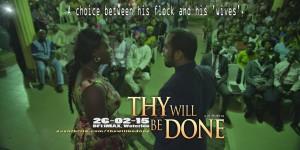
The church elders expanded more on their question; they clarified to their pastor that the church members are looking up to him and he should not go against his preaching of being monogamous. A reminder to Pius that he should practice what he preaches. They asked Pastor Pius to choose one wife and subsequently divorce the other. Pastor Pius ultimate response was, “I made an oath to God to my wives” never to part with them till death do us apart. At first, it all seems like an easy task being married to two women living under one roof, but as the story progresses, Pastor Pius’ role as the senior pastor becomes more scrutinised and the pressure of realising he was in fact a sinner was the turning point in this film.
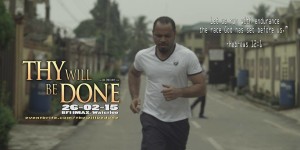
The acting from the four main characters was realistic and natural. We see realistic emotion conveyed in their body languages and voice- tone when expected. There were no overdramatic acts from any of the characters. Obi Emelonye has a way of bringing out professional acting from his casts, which often tend to lack in most Nollywood films. This sort of skilful acting was evident in his previous highly rated film Mirror Boy and Last Flight to Abuja. Ramsey Noah convincingly played the charming fatherless pastor, who was faithful and committed to his devoted wife, Lucy (Mercy Johnson). Mercy Johnson gave one of her best acting showcases, of a dominating confident high class barrister who had never experience any threat from another women since being marriage to Pius for four years until Muna (Pius’s first wife) came back from the dead after 7 years of invisibility. Everyone except Lucy shared the happiness of Muna’s sudden reappearance and she was adamant to go to any length to discover whatever Muna had buried beneath the sun. “I can’t share you with any woman” Lucy warned Pius who turned on a deaf ear and made himself lust for his first wife Muna. Supporting actor, Tony Aclet, who played the role of a junior pastor and the best friend to Pius, has a way of bringing out the best of Ramsey Noah. Tony Aclet’s acting rhymed with Noah in terms of dialogues and composure. There were scenes in which I laughed out loud, such as Pius’ joke of Ramsey’s two wives dilemma.
Technically, the overall editing style was appropriate for the mood the film aimed to convey. A wise selection of traditional soundtracks that was predominant in the film did manage to get responsive feedback from the viewers at the film screening. A good strong amount of continuity editing flows from scenes to scenes was principal narrating the story from the use of flash back to what really happened to Mary 7 years ago to the present day of what happening now. Also, the camera angles interchanged often at the right time to depict emotions running through the characters. I am particularly fond of medium shot; I love to see the top bit of the characters dressing whilst reading facial expression, it makes so much difference in my interpretation of a scene.
The film was almost perfect for me, expect from some technical slaws. There were a few indoor scenes in which the director could have enhanced the lighting to reduce the dark shades cast on some of the characters. Additionally, the jump cut to a different editing visual effect at the ending scenes when the police cars were racing on Lagos streets didn’t rhyme with the effect used for the room scene, where the hostages were held. Nevertheless, it was an unexpected and thrilling ending.
THE PHOTOS
